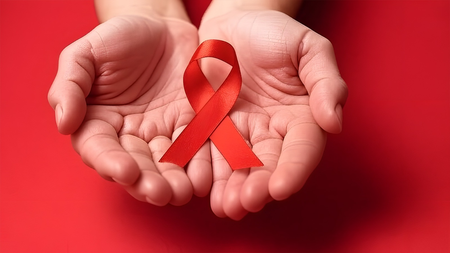By Evan Sterrett
Copyright gq

Last fall I went through a breakup that proved especially humbling because I couldn’t even call it a breakup. I’d been seeing a guy for, there’s no denying it, barely six weeks, but he lived across the country, so the affair involved long flights and all-consuming weekend romances that left me gasping for air on return.
Though our time together may have been too brief to qualify him as an “ex” in the traditional sense, when it ended I felt unmoored just the same. I’ve read it’s common to suffer more acutely from the ending of shorter relationships than longer-term ones because it’s like leaving Disneyland after only one ride—the fun is just getting started, and you didn’t even stay for the fireworks. This is a helpful analogy, but it can only buy your heartache so much airtime with friends and colleagues.
At a certain point, you have to go searching for answers on your own. Like many a lost soul, I took to the internet, where there’s no shortage of people espousing claims of expert wisdom. I quickly got sucked into the self-help corner that essayist Kristin Dombek dubs “the narcisphere” wherein strangers help you pathologize your past partners in pop-psychology terms that sound unimpeachable. On subreddits like r/BreakUps and r/NarcissisticAbuse, you’ll discover that if your partner is suddenly giving you less attention, they might actually be “doing a discard”—a narcissist’s maneuver that often comes after a cycle of idealization and devaluation. Examples abound. You don’t have to search very far to find an explanation for just about every deviation in human behavior possible, with a hive eager to tell you what to think and who to blame.
So, like any reasonable person going through a desperate time, I began comparing my past lover’s behaviors to the lists of red flags I found online. Come to think of it, he did take a lot of selfies, which Psychology Today claims can be linked to “grandiose narcissism.” On my first trip to visit him, he opened up to me about some pretty heavy stuff, a technique #NarcTok calls “trauma dumping,” a shortcut for manufacturing intimacy and emotional dependence. Before he told me he wasn’t looking for anything serious, he sent me an Airbnb listing in the South of France, which seemed like an invitation at the time, and I could’ve sworn there was mention of him wintering in LA with me. Relationship coaches like Sabrina Zohar call this “future faking,” a manipulation tactic designed to instill a false sense of hope and security.
The pop-psychology hive had diagnoses for the things I liked about him as well. He singled me out at a party, made me feel like the only person in the room, and later told me that was one of the best nights of his life. He paraded me around to his friends, took me to a yoga class that happened to be a “love meditation,” and made me a playlist that included “Real Love Baby.” Everything was romantic. “Wake up!” the hive screamed. Narcissists, research shows, are incredibly charming at first. What I saw as signs of encouragement were actually “love-bombing,” which is—you guessed it—another form of manipulation and emotional abuse. Damn, he really got my ass!
The certainty of this language was like a warm bath. Feeling morally superior sure beat feeling dumped. Not only was I wronged, but I was also a noble warrior in the fight against something bigger than myself: the epidemic of narcissism (or bipolar disorder (BPD) or [insert trending mental health diagnosis here]). I’m not alone. The (Reddit) medical community is on my side. My ex has a sickness, and there’s nothing I could’ve done to change him. The best I can do is run as the hive shouts, “NO CONTACT!” behind me.
If your ex’s symptoms don’t fit neatly into one particular DSM bucket, a more generalized label will suffice. Out of the ashes, the so-called evil ex is born. In the wake of my latest romance, I saw the phrase everywhere I scrolled. An 18-year-old artist on Instagram will draw your evil ex for just $10. An astrologist on X says you should have three exes—“one truly evil one, one normal one, and one situationship”—before you meet your spouse. A man on Reddit recounts how his girlfriend of 11 years cheated on him, then tried to sue him and his employer when he refused to keep paying her (and her new boyfriend’s) bills. His post garners thousands of upvotes.
As our social platforms increasingly optimize for outrage, it makes sense that this is the direction love stories are trending. Context collapses to fit the confines of the short-form video or tweet, and relationships get recast into the good partner and the bad one. And, thanks to the narcisphere, we’re now armed with (inexpert interpretations of) pop psychology to bolster our indictments. In a world where we’re all main characters, anyone who thwarts us on our quest to find our soulmates inevitably assumes the qualities of the antagonist. We have to vilify our exes so that we can advance in our own hero’s journey. The monsters grow in size, and we get to stay innocent.
But they can’t all stay monsters forever. Last month, I ran into my non-ex at the same warehouse party where we’d met a year prior. The next morning he asked me to get coffee. I ignored the hive’s wails for “NO CONTACT!” and met him in a park. A band was warming up behind us as he recounted his side of our story. He said he got swept up in the romance and, before he knew it, was in over his head. He realized he didn’t want a relationship, but rather than communicate this, he pulled away. When I sensed him distancing, I pushed further, which only widened the gap between us.
What struck me in his retelling was how ordinary it all sounded. In fact, I’d been here before, looking over from the other side. I winced as I recalled a memory from last January, when a New Year’s kiss turned into a weeklong fling before I caught my breath and decided I was out. What had I done with this realization? I took the guy to an off-Broadway show! I kept the train moving instead of having a hard conversation—one I eventually relegated to text, after I’d safely left town. The hive would have words for me, and I couldn’t argue with them. I’d been careless, too frightened by the unreliability of my own emotions to admit when they’d turned, and too desperate to be liked to be honest. Had I vilified in my alleged love-bombing, future-faking, trauma-dumping narcissist the very things I was ashamed of in myself?
There are the exes who have committed truly evil acts, and then there are the exes who have just broken up with us. Thankfully, most of us only have to deal with the latter, where more mundane evils—selfishness, avoidance, poor communication—result not from any innate wickedness, but from two fallible beings trying to form a connection. If we’re lucky enough to fall into this category, the vilification of the ex can be used as a temporary salve to get one through the darkest days, but it’s probably best not to linger there for long. To make an ex evil incarnate risks becoming its own form of narcissism, with its grandiosity and lack of empathy, that masks the harder truth: We all have the capacity to hurt. As long as we’re busy narcissist-hunting, we miss an opportunity to look inward, and to grow.
Sitting there in the afternoon light, with the forgiving distance of a whole year between us, I didn’t see any evil within this man who had broken my heart. I just saw a person doing the best he could, with the information he had, and the circumstances he was in. And who was I to blame him for that?



